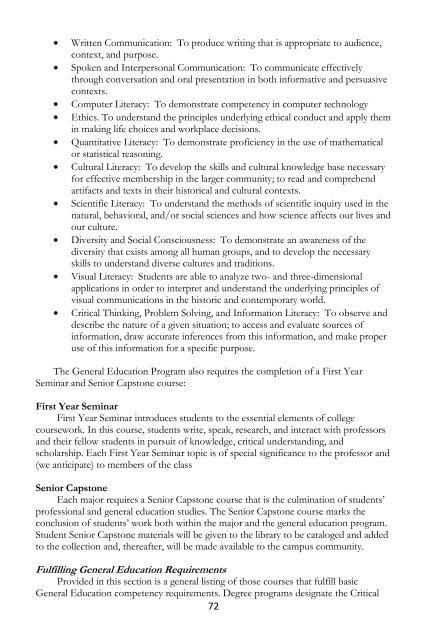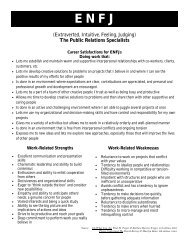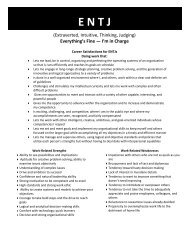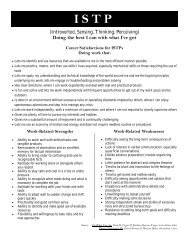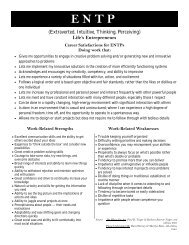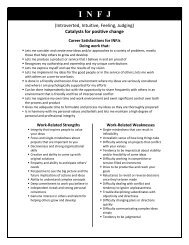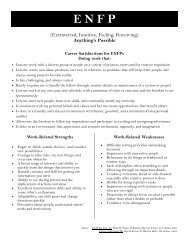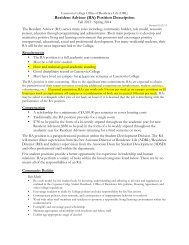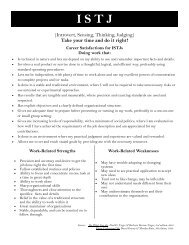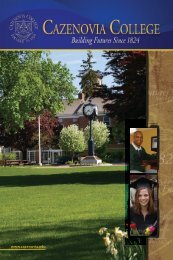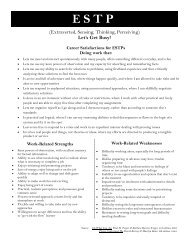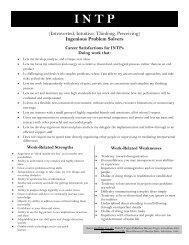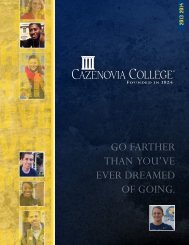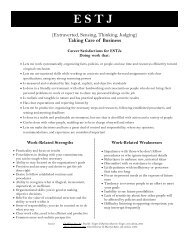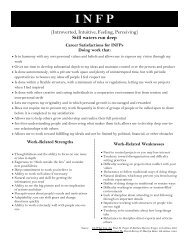Named one of “America’s Best Colleges” by U.S News & World Report
2011-12 Academic Catalog - Cazenovia College
2011-12 Academic Catalog - Cazenovia College
- No tags were found...
You also want an ePaper? Increase the reach of your titles
YUMPU automatically turns print PDFs into web optimized ePapers that Google loves.
Written Communication: To produce writing that is appropriate to audience,<br />
context, and purpose.<br />
Spoken and Interpersonal Communication: To communicate effectively<br />
through conversation and oral presentation in both informative and persuasive<br />
contexts.<br />
Computer Literacy: To demonstrate competency in computer technology<br />
Ethics. To understand the principles underlying ethical conduct and apply them<br />
in making life choices and workplace decisions.<br />
Quantitative Literacy: To demonstrate pr<strong>of</strong>iciency in the use <strong>of</strong> mathematical<br />
or statistical reasoning.<br />
Cultural Literacy: To develop the skills and cultural knowledge base necessary<br />
for effective membership in the larger community; to read and comprehend<br />
artifacts and texts in their historical and cultural contexts.<br />
Scientific Literacy: To understand the methods <strong>of</strong> scientific inquiry used in the<br />
natural, behavioral, and/or social sciences and how science affects our lives and<br />
our culture.<br />
Diversity and Social Consciousness: To demonstrate an awareness <strong>of</strong> the<br />
diversity that exists among all human groups, and to develop the necessary<br />
skills to understand diverse cultures and traditions.<br />
Visual Literacy: Students are able to analyze two- and three-dimensional<br />
applications in order to interpret and understand the underlying principles <strong>of</strong><br />
visual communications in the historic and contemporary world.<br />
Critical Thinking, Problem Solving, and Information Literacy: To observe and<br />
describe the nature <strong>of</strong> a given situation; to access and evaluate sources <strong>of</strong><br />
information, draw accurate inferences from this information, and make proper<br />
use <strong>of</strong> this information for a specific purpose.<br />
The General Education Program also requires the completion <strong>of</strong> a First Year<br />
Seminar and Senior Capst<strong>one</strong> course:<br />
First Year Seminar<br />
First Year Seminar introduces students to the essential elements <strong>of</strong> college<br />
coursework. In this course, students write, speak, research, and interact with pr<strong>of</strong>essors<br />
and their fellow students in pursuit <strong>of</strong> knowledge, critical understanding, and<br />
scholarship. Each First Year Seminar topic is <strong>of</strong> special significance to the pr<strong>of</strong>essor and<br />
(we anticipate) to members <strong>of</strong> the class<br />
Senior Capst<strong>one</strong><br />
Each major requires a Senior Capst<strong>one</strong> course that is the culmination <strong>of</strong> students‘<br />
pr<strong>of</strong>essional and general education studies. The Senior Capst<strong>one</strong> course marks the<br />
conclusion <strong>of</strong> students‘ work both within the major and the general education program.<br />
Student Senior Capst<strong>one</strong> materials will be given to the library to be cataloged and added<br />
to the collection and, thereafter, will be made available to the campus community.<br />
Fulfilling General Education Requirements<br />
Provided in this section is a general listing <strong>of</strong> those courses that fulfill basic<br />
General Education competency requirements. Degree programs designate the Critical<br />
72


